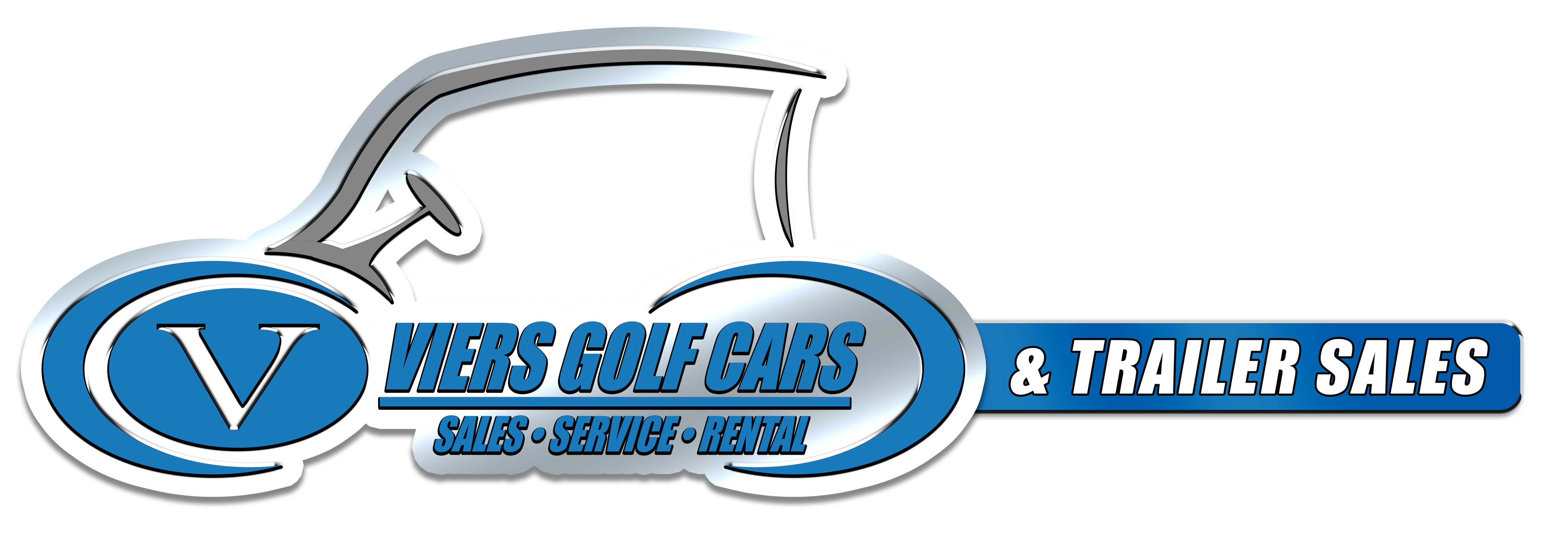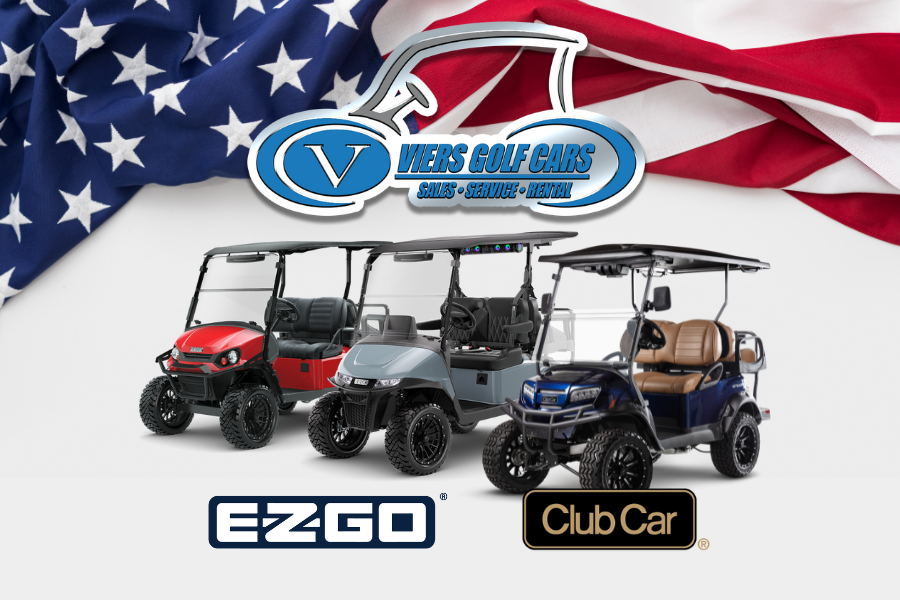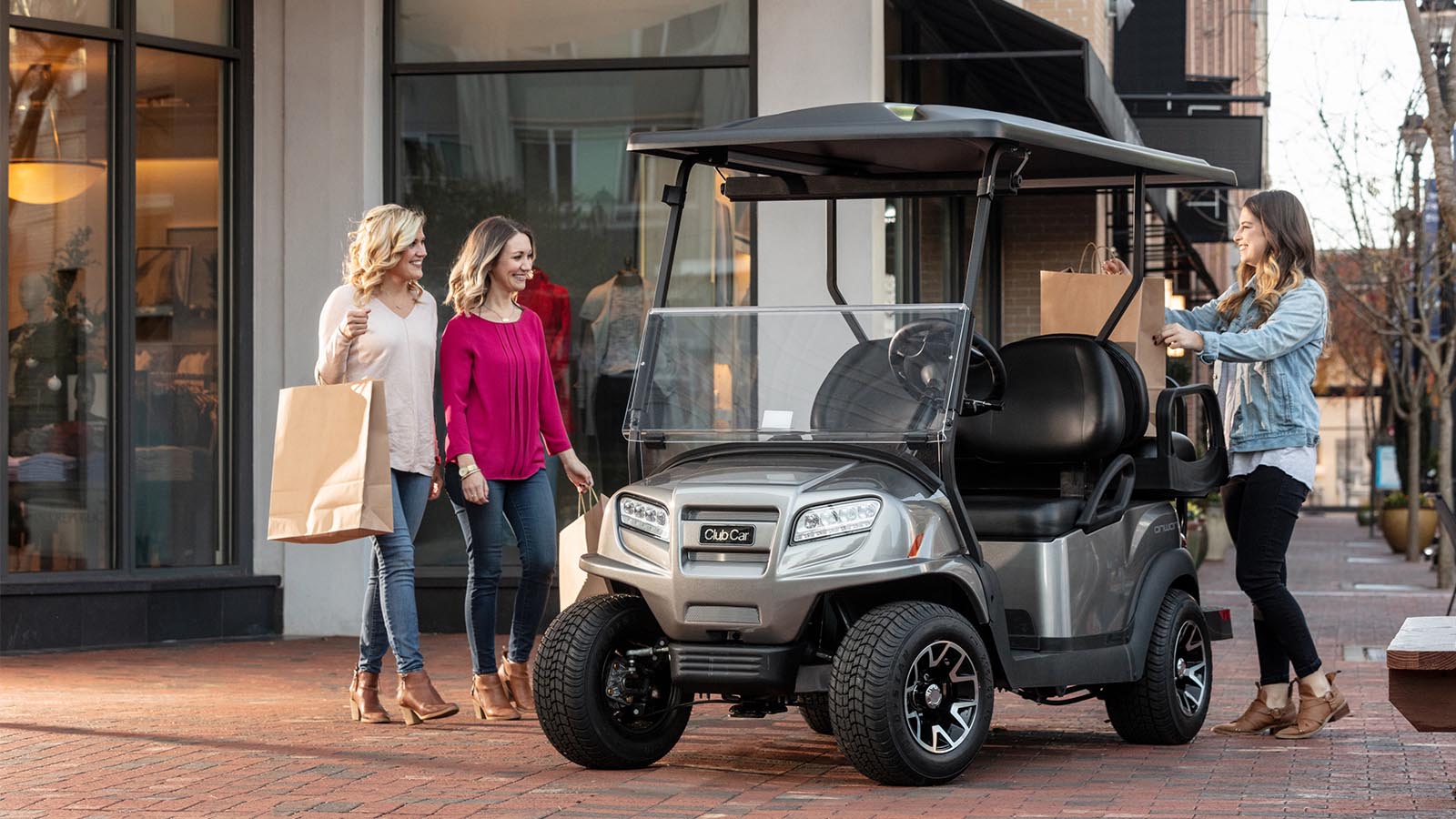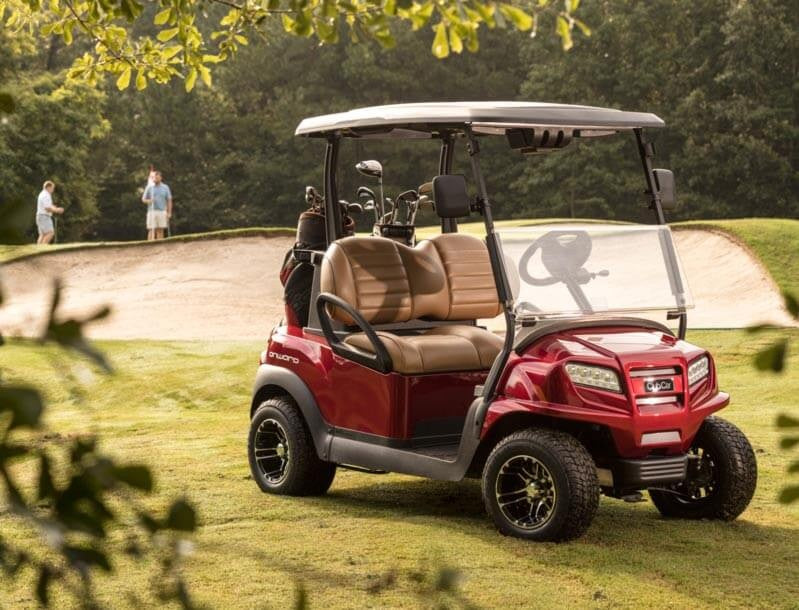WHY AMERICAN-MADE GOLF CARS ARE THE SMARTER CHOICE IN 2025
American-Made Golf Carts vs. Chinese Imports: What Buyers Should Know in 2025
A practical guide to safety, service, tariffs, and choosing a cart you’ll love for years.
Shopping for a golf cart should be easy—pick the style you like, make sure it’s safe and legal, and enjoy the ride. Lately, though, buyers tell a different story: attractive online prices, “street-legal” claims that don’t hold up, parts nowhere to be found, and retailers who don’t service what they sell. This article lays out the facts—clearly and simply—so you can choose with confidence.
Why the Market Shifted in 2025
In mid-2025, the U.S. finalized trade orders on certain low-speed personal transportation vehicles (golf carts, PTVs, LSVs) made in China. After the U.S. International Trade Commission confirmed injury to U.S. producers, the Department of Commerce issued antidumping and countervailing duty (AD/CVD) orders—then amended them on Aug. 12, 2025—that set very high duty rates for multiple Chinese producers. In plain language, several companies faced dumping margins around 119% and 312%, a China-wide rate near 478%, and subsidy rates commonly in the 31–44% range (higher for non-responders). You can see Commerce’s case summary here.
For consumers, the takeaway is simple: duties this high make many import-only business models uneconomic. When a seller exits, support often exits with them—parts, warranty processing, and even basic service.
“Street-Legal” Means Meeting a Federal Standard—Not Just Having Lights
A lot of web listings call a cart “street-legal.” In the U.S., that status isn’t a slogan—it’s compliance with FMVSS 571.500 for Low-Speed Vehicles (LSVs), plus state registration. Among other items, FMVSS 571.500 requires headlamps, front and rear turn signals, tail/stop lamps, reflex reflectors, mirrors (driver’s side and passenger or interior), a parking brake, a windshield that meets glazing rules, seat belts at each designated seating position, a VIN, and a top speed limited to 25 mph. If a vehicle isn’t certified to this standard, it may not be legal to register or insure as an LSV—even if it looks “ready.”
As Electrek notes, many micro-EVs marketed online simply don’t meet the federal and state requirements—something buyers often discover only after delivery.
PTV vs. LSV (and PTLSV): What’s the Difference?
PTV (Personal Transportation Vehicle) is a common industry term for a golf cart configured for neighborhoods, resorts, or private property. Speeds typically remain under 20 mph and rules are set locally (community ordinances, HOA, etc.).
LSV (Low-Speed Vehicle) is a federal category. An LSV runs 20–25 mph, must meet FMVSS 571.500, and usually requires state registration, plates, and insurance.
PTLSV is an industry shorthand some sellers use for “PTV configured to LSV specs,” but the legal bar is the LSV standard above. If you intend to drive on public roads, confirm that the unit is certified as an LSV and eligible for registration in your state.
Parts, Service, and Fire Risk: Real-World Ownership Concerns
The most common complaint we hear about off-brand imports is simple: no parts pipeline and no one willing to service the cart. When importers change names or leave the market, warranty coverage and parts availability can evaporate. That “great deal” can turn into a garage ornament you can’t fix—or sell for a fair price.
Battery quality also varies. The U.S. Consumer Product Safety Commission has recalled certain 48V lithium batteries used in golf carts/LSVs for thermal burn and fire hazards—see one example here. For broader lithium-ion safety guidance, the U.S. Fire Administration page is here. Reputable brands validate their packs, chargers, and integration—because safety isn’t a feature; it’s a system.
Big-Box Reality Check
National chains (home-improvement and farm-supply stores) sometimes sell imported carts, but they typically do not perform in-house service. Service is often referred to the manufacturer or a third party, and parts may be limited. Before you buy, get clear, written answers to three questions: Who services it locally? Where do parts ship from? Who administers the warranty?
Total Cost of Ownership (TCO): The Price You Pay After the Price You Pay
A lower sticker price can be wiped out by shipping delays, failed registrations, unavailable parts, or weak resale values. By contrast, carts from established American brands often cost less over the first few years because parts are stocked, service is nearby, and resale demand is strong. Ask any seller for a written estimate of annual maintenance, expected parts lead times, and the warranty claim process.
Who Makes What? A Simple Brand Map
Here’s a quick reference so shoppers can recognize when a “new” brand is tied to a Chinese factory named in U.S. trade orders. (Relationships can change—always confirm on the certification label and Certificate of Origin.)
Manufacturers & Brands (China-made carts)
This table maps each manufacturer to U.S. brand names and shows current AD/CVD cash-deposit duty rates.
| Manufacturer | Brands | Duty rates (AD / CVD) |
|---|---|---|
| Xiamen Dalle / HDK | Evolution | 312.54% AD / 44.38% CVD |
| LV Tong (Guangdong Lvtong) | Advanced EV; ICON | 119.39% AD / 31.45% CVD |
| Marshell | Star EV, Epic | 292.03% AD (separate rate) / 41.14% CVD (all others) |
| Tao Motor (Zhejiang Taotao) | Denago, GoTrax, Racka, Coleman | 292.03% AD (separate rate) / 41.14% CVD (all others) |
| NUOLE – Cengo Car | Kandi, Vivid, Gorilla Rides, Venom | 478.09% AD (China-wide)‡ / 41.14% CVD (all others) |
| Aoxiang (Shenzhen Aoxiang) | Sierra LSV, Honor LSV, Risun, Kodiak, Apex | 292.03% AD (separate rate) / 41.14% CVD (all others) |
| EXCar (Dongguan Excar) | Bintelli; Atlas | 292.03% AD (separate rate) / 41.14% CVD (all others) |
| LeRoad (Jiaxing Learoad) | Nivel, MadJax, LeRoad | 292.03% AD (separate rate) / 41.14% CVD (all others) |
| Suzhou Eagle | Eagle EV, Hahm EV, Sunday Carts | 292.03% AD (separate rate) / 41.14% CVD (all others) |
| Tomberlin | Tomberlin | N/A for PRC orders† |
| Heibe (Hebei Machinery Import & Export) | Generic – available on Alibaba | 478.09% AD (China-wide) / 691.58% CVD (AFA) |
| Shandong Odes | Aodes | 478.09% AD (China-wide) / 691.58% CVD (AFA) |
Notes:
• AD = antidumping; CVD = countervailing. These are separate cash-deposit rates at import; they are not simply added together.
• “Separate rate” AD for non-examined companies is 292.03%; “All Others” CVD is 41.14%.
• “China-wide” AD rate is 478.09% when no separate rate applies.
• “AFA” indicates an adverse facts-available CVD rate (e.g., 691.58% for Hebei Machinery and Shandong Odes).
† PRC AD/CVD orders apply to Chinese-origin LSPTVs; U.S.-made models are not covered. Always confirm country of origin for a specific unit.
‡ NUOLE/Cengo is not listed among the separate-rate companies; absent a specific exporter/producer pairing, the China-wide AD rate typically applies. Verify the producer on the Certificate of Origin.
Sources: Federal Register (Amended Final order) for AD and CVD tables: link; Commerce case summary on Trade.gov: link.
Why the Big Three Still Win: Safety, Support, and Staying Power
With American-made brands, the experience is different by design. Vehicles are engineered to U.S. standards, backed by nationwide parts and service networks, and supported by companies with decades of know-how. That means fewer surprises and true peace of mind.
- Built for compliance: Designed to meet or exceed FMVSS 571.500 and state registration rules for LSVs.
- Real support: Authorized dealer networks for parts, maintenance, and warranty work.
- Quality & durability: Proven components, validated battery systems, and rigorous testing.
- Resale value: Recognized names tend to hold value better over time.
Brand Heritage: How Long Have the Leaders Been in Business?
Longevity matters. When companies stay in business for generations, it shows in engineering maturity, parts stocking, and service training. Here’s a quick snapshot:
- E-Z-GO — building golf cars in Augusta, Georgia since 1954 (E-Z-GO).
- Club Car — founded in 1958 (moved to Augusta in 1962), serving customers for over six decades (Club Car).
- Yamaha Golf Car — launched its first golf car in 1975; U.S. operations in Georgia since 1988 (National Golf Foundation).
10 Questions to Ask Before You Buy
- PTV or LSV? If LSV, ask for proof of FMVSS 571.500 compliance and state registration eligibility.
- VIN & docs: Is there a valid VIN, Certificate of Origin, and owner’s manual specific to your model?
- Safety equipment: Do you see headlamps, turn signals, tail/stop lamps, reflectors, mirrors, seat belts, parking brake, compliant windshield?
- Battery & charger: Who makes them? Are they validated for the vehicle? What’s the warranty—and who honors it?
- Parts availability: Are common parts stocked in the U.S.? What are typical lead times?
- Service network: Who will service the cart locally? Get a name, address, and estimated turnaround time.
- Warranty process: Who approves claims? How are shipping and labor handled?
- Resale value: What do comparable used units sell for from the same brand after 2–3 years?
- Total cost: Ask for a written estimate of maintenance and likely wear items for the first 24 months.
- Return policy: If registration is denied, what’s the remedy?
Quick FAQ
Are all imports unsafe? Not necessarily. The key is compliance and support. If a vehicle isn’t certified to U.S. standards or lacks a parts/service network, that’s a red flag.
Can I make a PTV street-legal later? Upfitting hardware is only part of it—you still need certification and state registration. It’s usually easier to buy an LSV that’s already compliant.
Will the tariffs go away? These new tariffs are in place for 5 years (minimum) and can only go up. Beyond that, trade orders can be revised over time, but planning on a rollback is risky. Buy based on the rules in place now.
Do third-party shops service imports? Some do, but many decline due to parts access and documentation. Confirm before you buy.
Why Buy from Viers Golf Cars
Viers Golf Cars is family-owned and operated, serving the Lapeer area since 2004. We help you choose the right cart, keep it maintained, and source the parts and accessories that fit your needs. Prefer shopping online? Browse current inventory anytime.
The Bottom Line
New U.S. trade orders and long-standing safety rules have raised the bar for what belongs on American roads. If you want a cart that’s legal, safe, and supported for the long haul, American-made Club Car, E-Z-GO, and Yamaha deliver the confidence those web-only “deals” can’t match.
We provide local service in Lapeer, MI and surrounding communities, with nationwide shipping on new golf cars, parts, and accessories.
Disclaimer: This article and it's content has been thoroughly researched with sources provided. If you find an error, please leave a comment so we can authenticate and correct if necessary.




Leave a comment